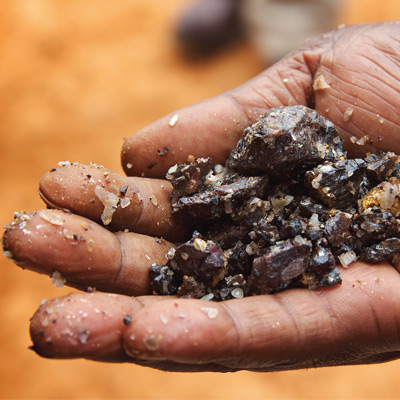
Executive summary
The final lead-up to Congo’s elections marks a pivotal moment for reform and conflict prevention in eastern Congo. Before the November 28 scheduled vote, the Congolese government is desperate to deliver services to eastern Congo, a region that strongly supported President Joseph Kabila in the 2006 election but where his support has waned because of continued war. The Congolese government can help boost public opinion in the East and prevent the outbreak of violence by initiating reforms that would have a lasting impact on ending the conflict. The legislation U.S. President Barack Obama signed in July 2010 addressing the war’s financial driver, conflict minerals, has further opened the window for reform, and the Obama administration must follow up on it with additional action.
For peace and stability to take hold in Congo, reform must happen on multiple fronts. There is an inherent connectivity between good governance, security-sector reform, and accountability. But the economic issues connected to the illegal exploitation of conflict minerals are the catalytic issue that, if addressed properly, can unlock the door to progress in these other critical areas and hasten peace in Congo. Enough’s recent five-part proposal on U.S.-Congo policy addressed this issue.[i] The focus of the following report is on the potential for policy change on conflict minerals and conflict prevention. The upcoming election presents a moment to highlight, for Congolese leaders, the timely need to follow up on existing legislation and reforms occurring on the ground.
Progress in tackling the economic fuel of the conflict is occurring through reforms spurred by the Dodd-Frank legislation on conflict minerals. But success will require increased involvement from the Obama administration, the Congolese government, and corporations, all pushing for monitoring, mine security, and community protection. Measurable progress is occurring in seven different areas:
- Attacks in several mineral-rich areas are decreasing, and armed commanders are starting to lose their grip on the minerals trade.
- Prosecutions and arrests of armed commanders for rape and illicit minerals trafficking are proceeding more rapidly.
- Investors have begun responsible minerals sourcing programs in Katanga province, in the Southeast, and additional traceability programs in Rwanda and Maniema province, in the East.
- Validation of mines is beginning in the Kivu provinces, which would enable responsible sourcing.
- A regional government framework through the International Conference on the Great Lakes Region, or ICGLR, is now in place to deal with the issue of regional trade and monitoring.
- Congolese civil society is speaking out openly on the issue following years of harassment and intimidation.
- The Obama administration has launched a technical, public-private aid project to support regional schemes.
The current hodgepodge of initiatives, however, lacks a monitoring system to evaluate whether industry systems exclude exploitation from armed commanders, and companies are not yet investing in the region in big enough numbers. The initiatives also lack consensus on how audits should be conducted as well as incentives to invest, which is hurting some miners that were made jobless during President Kabila’s mining ban. Impunity for human-rights abusers is only beginning to be addressed, and gold is being smuggled in ever larger volumes and traded for arms.
The Obama administration should use this opportunity to pressure the Congolese government to choose governance reform, not armed force, to secure votes in the East, and then to take three key steps toward fostering reform, in partnership with the United Nations and European donors:
- As a key step to certification, ensure that the new Public-Private Alliance stands up a regional-monitoring mechanism to verify whether mines and traders are conflict-free. This mechanism should be housed in the ICGLR to guarantee regional legitimacy and enforcement of penalties, and the first monitors should be deployed by February 2012 so that companies may begin responsible, verifiable sourcing as soon as possible.
- Ensure United Nations observers and Congolese mining police are deployed at perimeters of mine sites as a key step to demilitarize mines.
- Support civil society and mining communities through protection, livelihood funds, and the promotion of responsible investment.
These critical steps would contribute to progress on the ground in eastern Congo. Armed commanders’ financial calculations are only starting to change, so there is still a need for further work on conflict minerals to open the door to broader political, economic, and security reforms.
[i] Aaron Hall and Sasha Lezhnev, “U.S. Congo Policy: Matching Deeds to Words to End the World’s Deadliest War,” Enough Project, October 4, 2011, available at https://enoughproject.org/publications/us-congo-policy-matching-deeds-words-end-world%E2%80%99s-deadliest-war

